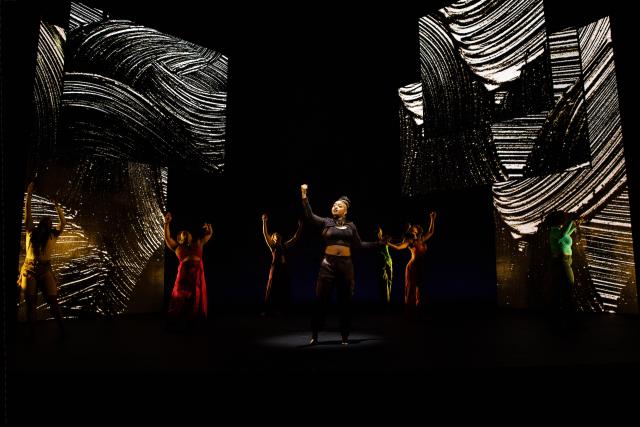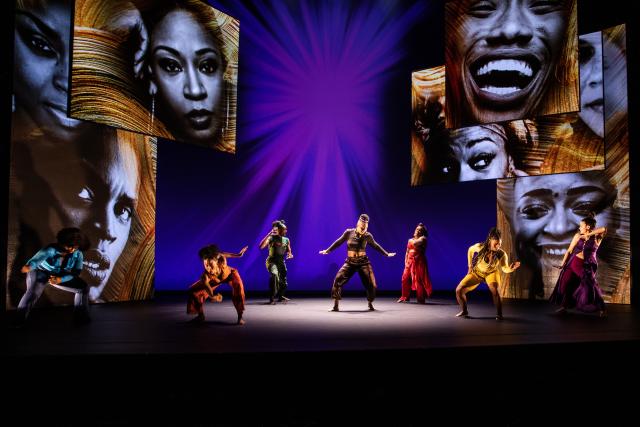

In this theater season when African-American women playwrights such as Lynn Nottage, Dominique Morriseau, Antoinette Chinoye Nwandu, and the late Alice Childress are receiving major productions of their work, it’s appropriate that we are also seeing the first Broadway revival of Ntozake Shange’s 1976 choreopoem, for colored girls who have considered suicide/when the rainbow is enuf. First produced in a women’s bar near Berkeley, California, then Off-Broadway at the New Federal Theater and the Public, and on Broadway at the Booth where the revival is now playing, for colored girls was only the second play by an African-American woman to open on the Main Stem. (The first being Lorraine Hansberry’s A Raisin in the Sun.)
Apart from changing a reference from Vietnam to Afghanistan, there has been no updating, but the issues of racism and sexism raised are still tragically relevant. This new vibrant, energetic production from director-choreographer Camille A. Brown celebrates the play’s spirit of sisterhood with joyous movement and magnificent acting.
The 90-minute piece combines poetry, dance and music as seven women, named for the colors of their costumes, share their experiences of oppression and resilience. Ranging from an ecstatic high-school prom date to a shattering encounter with a crazed ex-lover, the monologues form a tapestry of pain, love, and community. Brown, who choreographed an earlier Off-Broadway revival at the Public, weaves in exuberant dance steps, some based on schoolyard games, others on Latin popular rhythms, along with intricate grouping and dramatic patterns. Brown is also a trailblazer here as the first African-American women to both direct and choreograph a Broadway show in over 60 years.
The company skillfully conveys the passion of the various ladies through limning and movement and casting directors Erica Jensen and Calleri Jensen Davis have assembled a fascinatingly diverse group. A pregnant Kenita R. Miller is shattering in her climactic monologue, recounting a devastatingly abusive relationship with a drug-addicted veteran (here is where the Vietnam allusion is updated). You can feel her pain as she transitions from the third person narrating the story to a shattering first person account of her children being in danger. Her pregnancy makes the impact all the greater.
Okwui Okpokwasili blazes with anger and indignation as she accuses a departing beau of stealing her “stuff,” meaning her personal traits and emotions which she invested in a wrecked affair. Amara Granderson saucily conveys the excitement of losing herself in dance as does Stacy Sargeant who also explodes with intensity when she tells the world she’s had enough apologies. Tendayi Kuumba exhibits spunk and sass recreating a young girl’s infatuation with the Haitian revolutionary Toussaint L’Overture. Hearing-impaired actress Alexandria Wailes is seductive and shaky-hipped as a carnival dancer and makes herself perfectly understood even to those who don’t know sign language. D. Woods sweetly recreates a high-school graduate’s sexual initiation.
Safari Bush’s casual and athletic costumes facilitate the movement and are suitable for the various situations. Myung Hee Cho’s open and suggestive set is transformed into a variety of environments by Jiyoun Chang’s lighting and Aaron Rhyne’s projections. Martha Redbone and Aaron Whitby provided the original, multi-genre music for this full-bodied for colored girls.
